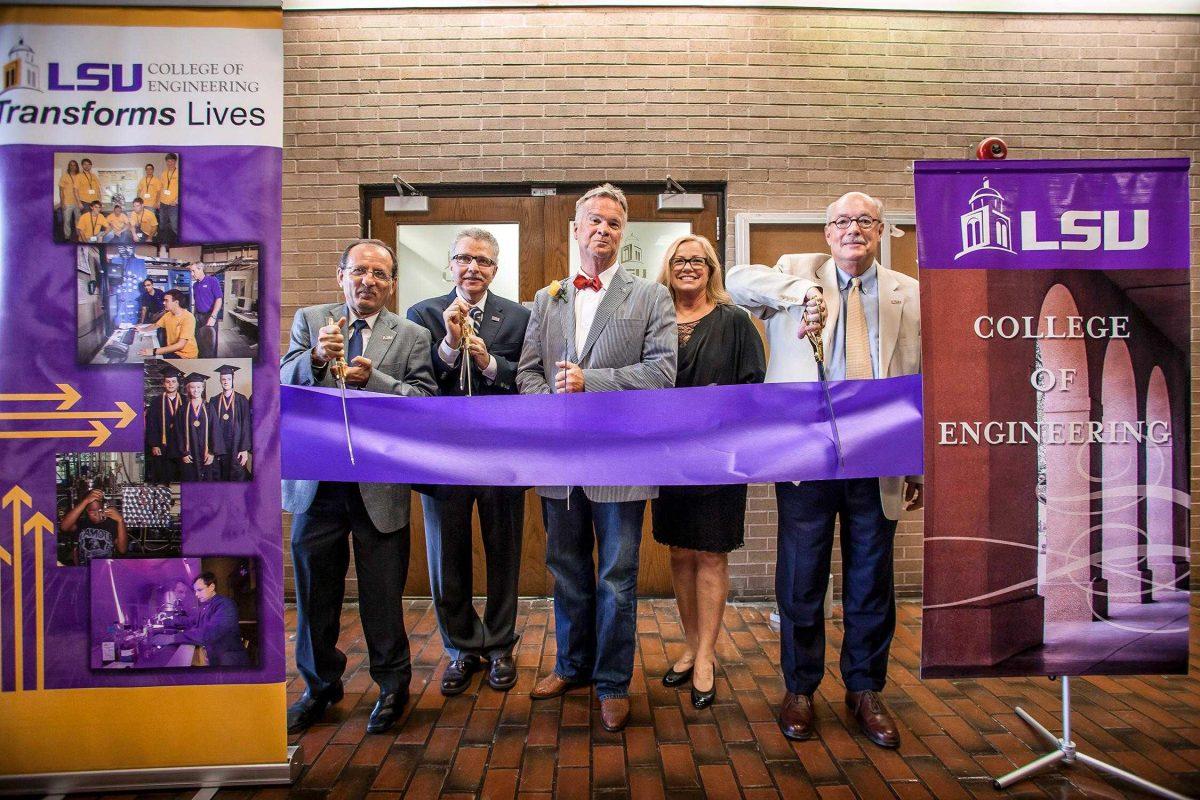Louisiana’s roads will soon see an increase in quality with the newly created L.H. Bossier Laboratory, according to engineering professor George Voyiadjis.
Conventional roads, intended for long-term automobile traffic, are often constructed in layers. These layers may include sand, gravel, tar, paving bricks, asphalt or concrete. According to Voyiadjis, finding a perfect balance between asphalt and aggregate is a challenge many face. The laboratory will feature projects that enable students to find that perfect balance.
The laboratory, located in Patrick F. Taylor Hall, was unveiled in May in the Department of Civil and Environmental Engineering. The Bossier family made the lab possible through a private donation to the LSU Foundation.
“By donating this lab, we form a public-private partnership connecting industry with academia and advancing the paving industry overall,” Bryan Bossier, president of Diamond B Construction, announced at the ribbon cutting ceremony. “We anticipate the result to be better products and practices to ultimately benefit every traveling taxpayer nationwide.” Voyiadjis said he believes the lab will help fix less-than-stellar Louisiana roads.
“The roadways in Louisiana are in bad shape,” he said. “In our state, we have this problem because of the soil. Asphalt is flexible, unlike concrete, it is able to sustain better than concrete.”
The addition of the asphalt lab will enable students and faculty to perform research in asphalt production. According to Voyiadjis, the most meaningful work will be researching the correct proportion of asphalt and aggregate, as well as figuring out how to design roads.
Engineering professor Louay Mohammad said the lab will place the University among the top tier of universities competing for asphalt research funds and provide hands-on experience.
“Establishing the L. H. Bossier Laboratory at LSU is a significant milestone to the advancement of research and work development in the area of asphalt technology and infrastructure sustainability for our state and the nation,” Mohmmad said. “This laboratory offers a unique opportunity to the industry through training of a workforce in pavement engineering, particularly asphalt technology. In addition, it will position LSU amongst the top Tier 1 research universities to compete for research funds in the area of asphalt technology.”
Several courses will be taught in the lab, including: CE 3700 – Engineering Materials Laboratory – CE 4650 – Introduction to Asphalt Mixture Design – and CE 4670 – Fundamentals of Pavement Design.
L.H. Bossier has donated to multiple entities at LSU, including the Flagship Fund and the Alumni Association.
The Bossiers operate six asphalt plants in Louisiana and have won several national awards for quality road construction. Their company, Diamond B Construction, is the top asphalt producer in Louisiana.
____ Contact Joshua Bergeron at jbergeron@lsureveille.com
Asphalt lab to give ‘hands-on’ experience
June 28, 2012
Engineering professors Louay Mohammad and George Voyladjis, Diamond B Construction president Bryan Bossier, Renee Bossier and LSU Chancellor Michael Martin prepare to cut the ribbon at the ribbon cutting ceremony of the new L.H. Bossier Laboratory on May 16.






